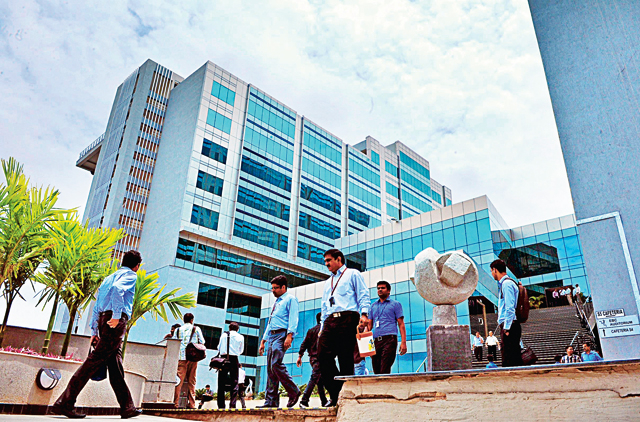Dubai: India’s federal budget unveiled on Saturday by finance minster Arun Jaitley has used fiscal space gained from the overall improvement in the economy and decline in oil price to invest in the infrastructure sector.
According to budget estimates, India’s fiscal deficit is projected to narrow to 3.9 per cent of gross domestic product (GDP) this financial year starting April 1. The deficit is expected to be 3.5 per cent in 2017 and 3 per cent 2018.
“With economy improving, the pressure for accelerated fiscal consolidation too has decreased. The additional fiscal space will go towards funding infrastructure investment,” Jaitley said, presenting the budget in the parliament.
“This is no secret that the major slippage in the last decades is on the infrastructure front,” Jaitley said. “Our infrastructure does not match our growth ambitions.”
Subsidies accounted for 15 per cent of total spending in the current year’s budget. To make the subsidies more efficient and targeted the Finance Minister announced yesterday that all subsidies will be made direct cash transfers through the banking channel.
Jaitley said the government is committed to eliminating waste in subsidies without reducing the levels. Marking the 75th anniversary of India’s independence in 2022, the budget pledges to provide more homes across the country in both rural and urban areas.
Presenting the budget, Jaitley said the country was growing at a strong rate, inflation was down and foreign exchange reserves were high, all “good signs of an economy that’s restored its credibility."
The key announcements in the budget included five mega power projects of 4,000 megawatts (MW), increased spending in to boost growth, creation of a social security net to cover all Indians and implementation of a uniform countrywide goods and services tax by April 2016.
Jaitley said the government has completed a monetary policy framework agreement with the Reserve Bank of India that would contain inflation at 6 per cent opening room for rate cut.
The Finance Minister also said the government would amend the RBI Act to establish a monetary policy committee without giving further details.
While the budget lacked major announcements on personal income tax , it said the maximum corporate tax will be reduced from the current 30 per cent to 25 per cent this year. The government has delayed implementation of the General Anti-Avoidance Rules until April 2017. The rules, first proposed in 2012, seek to prevent companies from routing transactions through other countries to avoid tax.
Key measures included in the budget:
- Spend 700 billion rupees ($11.3 billion) in the coming fiscal year given the "pressing need" to upgrade infrastructure including to attract foreign investment
- Five new power projects of 4000 MW each
- Enact a new law to tackle "black money" transactions
- Set up a universal social security system for all Indians, specially the poor and unprivileged
- Amend the RBI Act to establish a monetary policy committee
- Introduce gold deposit accounts to utilise the 20,000 tonnes available within the country
- Launch a sovereign bond as an alternative to buying gold













